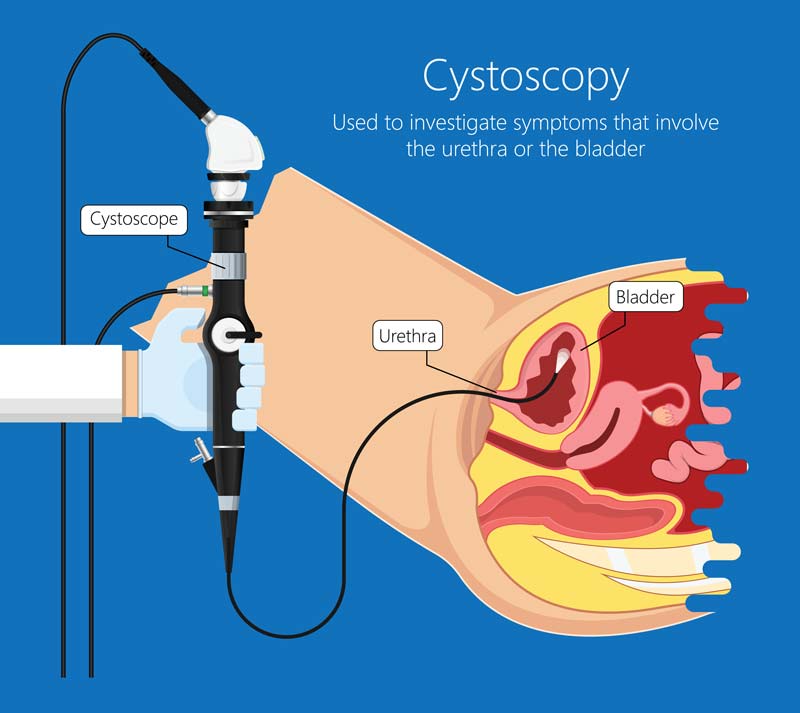What is Hematuria?
If you have blood in your urine, you’re experiencing hematuria. Taking a closer look at the word, we see that “hemat” means blood and “uria” means urine. This is not a disease, but rather, it’s a symptom of other diseases or conditions.
Sometimes, blood in the urine is visible to the naked eye, known as gross hematuria. In other cases, blood in the urine can only be detected through microscopic examination, a process known as microscopic hematuria.
While hematuria can be alarming, it doesn’t always mean you have an underlying severe health issue. There are many causes of hematuria, some of which are easy to treat. Other causes may be more significant. Because of this, it’s important to seek medical attention if you see blood in your urine.
Causes of Hematuria
Hematuria can be caused by a variety of conditions, ranging from insignificant to serious medical problems. Some common causes include:
- Urinary tract infections (UTIs): Infections in the urinary tract, such as cystitis (bladder infection) or pyelonephritis (kidney infection), can cause blood in the urine.
- Kidney stones: These are solid mineral deposits that form in the kidneys and can cause irritation or blockage, leading to hematuria.
- Bladder or kidney cancer: This can be an early symptom of bladder or kidney cancer, though these cancers are relatively uncommon.
- Kidney disease: Conditions that affect the kidneys, such as glomerulonephritis or kidney injury, can lead to hematuria.
- Prostate issues: In men, an enlarged or inflamed prostate can cause blood in the urine. Prostate cancer can also cause hematuria.
- Medications: Certain medications, including blood thinners and some pain relievers, can cause hematuria.
- Strenuous exercise: Rigorous physical activity, such as long-distance running, can lead to hematuria due to bladder trauma or the breakdown of red blood cells.
- Genetic disorders: Some hereditary conditions, such as sickle cell anemia or Alport syndrome, can cause blood in the urine.
Diagnosing the Cause
Since hematuria is a sign of an additional medical condition, your doctor will need to investigate the underlying cause of the blood in your urine. Hematuria is often found by someone noticing blood in their urine or when a urinalysis is performed for some other reason, like routine preventive care.
Some common diagnostic tests to identify the cause include:
- Urinalysis: A urine test that checks for blood, infection, or other abnormalities in the urine.
- Blood tests: These can help identify kidney function issues or other related conditions.
- Imaging studies: Ultrasound, computed tomography (CT) scans, or magnetic resonance imaging (MRI) can help identify the source of the bleeding and evaluate the urinary tract’s overall structure.
- Cystoscopy: A procedure in which a thin tube with a camera and light (cystoscope) is inserted through the urethra to visualize the bladder and identify any abnormalities.
Treatment of Hematuria
Treatment depends on the underlying cause. Some possible treatment options include:
- Antibiotics: If a urinary tract infection is the cause, antibiotics will be prescribed to treat the infection.
- Medication adjustments: If a particular medication is causing this, your healthcare provider may adjust the dosage or recommend alternative medications.
- Treatment for kidney stones: Depending on the size and location of the stone, treatments may include pain relief, increased fluid intake, or medical procedures to remove or break down the stone.
- Cancer treatment: If bladder or kidney cancer is the cause of hematuria, treatment options may include surgery, radiation therapy, or chemotherapy.
- Kidney disease management: Treating the underlying kidney disease may help resolve hematuria. This can involve medications, dietary changes, or dialysis in severe cases.
- Treatment of prostate problems: In men, treatment for enlarged or inflamed prostate may include medications, minimally invasive procedures, or surgery.
- Lifestyle modifications: For hematuria caused by strenuous exercise, modifying exercise routines or avoiding certain activities may help prevent future episodes.
- Genetic disorder management: In hereditary conditions causing this symptom, treatment may involve managing the underlying disorder through medications, lifestyle modifications, or other treatments.
In some cases, this symptom may resolve on its own without treatment, though it’s important to work with your doctor to monitor the condition to confirm it’s completely resolved.
Prevention of Hematuria
While not all causes of hematuria can be prevented, adopting certain lifestyle habits may help reduce your risk:
- Stay hydrated: Drinking sufficient water throughout the day can help dilute your urine and reduce the risk of kidney stone formation.
- Maintain a healthy diet: Consuming a balanced diet rich in fruits, vegetables, and whole grains can promote overall urinary tract health.
- Limit salt intake: Excess salt consumption can contribute to kidney stone formation and increase the risk of kidney disease.
- Exercise regularly: Regular physical activity can support overall health, but overly strenuous activities that may contribute to hematuria should be avoided.


